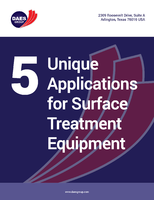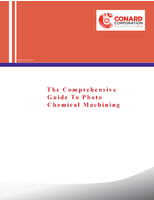ASTM Petroleum Committee works on proposed ETBE test method.
Press Release Summary:
Approval of proposed standard ASTM WK30961, Test Method for Analysis of Ethyl Tertiary-Butyl Ether (ETBE) by Gas Chromatography, will allow D02 specification to attain full compliance with Form and Style for ASTM Standards. Replacement of annex A1, Modification to Test Method D5441, Test Method for Analysis of ETBE by Gas Chromatography, with ASTM WK30961 will ensure test method with appropriate precision and bias statements.
Original Press Release:
ASTM Petroleum Committee at Work on Proposed Ethyl Tertiary-Butyl Ether Test Method
W. CONSHOHOCKEN, Pa.-The eventual approval of a proposed new test method currently being developed by ASTM International Committee D02 on Petroleum Products and Lubricants will allow a recently approved D02 specification to attain full compliance with Form and Style for ASTM Standards.
The proposed new standard, ASTM WK30961, Test Method for Analysis of Ethyl Tertiary-Butyl Ether (ETBE) by Gas Chromatography, is currently being developed by Subcommittee D02.J0.02 on Aviation Gasoline, part of Section D02.J0 on Aviation Fuels.
According to Cesar Gonzalez, an independent consultant and longtime D02 member, ASTM D7618, Specification for Ethyl Tertiary-Butyl Ether (ETBE) for Blending with Aviation Spark Ignition Engine Fuel, currently incorporates an annex, A1, Modification to Test Method D5441, Test Method for Analysis of Ethyl Tert-Butyl Ether (ETBE) by Gas Chromatography. However, in order to comply fully with ASTM Form and Style, the annex must be replaced by an independent ETBE test method with appropriate precision and bias statements. ASTM WK30961 will be that test method.
Gonzalez notes the importance of ethyl tertiary-butyl ether. "ETBE blends with motor gasoline and aviation gasoline hydrocarbon stock offer proven medium and high octane aviation fuel potentials unmatched by other oxygenate or hydrocarbon components," he says. "A gradual reduction and eventual elimination of lead additives can be safely, practically and economically attained by replacing lead components with ETBE."
ASTM International welcomes and encourages participation in the development of its standards. For more information on becoming an ASTM member, visit http://www.astm.org/JOIN.
ASTM International is one of the largest international standards development and delivery systems in the world. ASTM International meets the World Trade Organization (WTO) principles for the development of international standards: coherence, consensus, development dimension, effectiveness, impartiality, openness, relevance and transparency. ASTM standards are accepted and used in research and development, product testing, quality systems and commercial transactions.
View this release on the ASTM Web site at www.astmnewsroom.org.
ASTM Committee D02 Next Meeting: June 19-23, 2011, Baltimore, Md.
Technical Contact: Cesar Gonzalez, Wichita, Kan., Phone: 316-722-8362; cbgonzal1@aol.com
ASTM Staff Contact: David Bradley, Phone: 610-832-9681; dbradley@astm.org
ASTM PR Contact: Barbara Schindler, Phone: 610-832-9603; bschindl@astm.org




